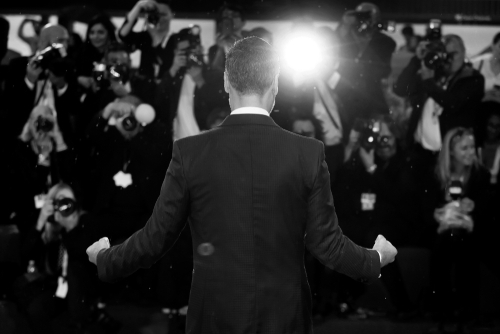
In a recent turn of events that has set social media ablaze, a comedian’s bold performance at a Kansas City comedy club has led to a significant stir. The stand-up act, which took place last month, included a segment that left the audience polarized, with several members choosing to walk out in protest.
The incident unfolded during the comedian’s 2024 tour stop at the Funny Bone Comedy Club. Known for his politically incorrect humor, the comedian posed a provocative question to the audience regarding George Floyd, a figure whose tragic death has been a focal point of social justice movements. His subsequent joke suggested an alternative violent action he would have taken instead of the knee-on-neck method that led to Floyd’s death. This remark triggered immediate backlash from the crowd.
Comedian David Lucas clears out his entire show of black people after making a joke about their lord and savior, George Floyd.
He then grinds the knife deeper with ‘I like Kyle Rittenhouse too.’
😂😂😂😂😂
This is how it’s done. 🫡 pic.twitter.com/eYaDiNhmlc
— Amiri King (@AmiriKing) February 11, 2024
As the tension in the room escalated, one audience member vocally condemned the comedian for his insensitivity towards George Floyd. The comedian’s response was unapologetic; he defended his comedic style as pushing boundaries and invited any offended individuals to leave. This exchange only heightened the charged atmosphere, leading to more departures.
Amidst the walkouts, the comedian doubled down on his controversial stance by expressing admiration for Kyle Rittenhouse, a figure who has been both vilified and celebrated in various circles for his actions during the civil unrest in Kenosha, Wisconsin. This praise further fueled the discontent among the audience, with some interpreting it as an endorsement of vigilantism.
This is BRUTAL.
Comedian David Lucas ROASTS George Floyd, causing some audience goers to get offended and leave.
“I like Kyle Rittenhouse too!”
🤣🤣🤣🤣pic.twitter.com/dc1eqiRFTh— Ryan Fournier (@RyanAFournier) February 11, 2024
The comedian’s performance continued to provoke strong reactions as he interacted with those leaving, making another contentious remark about George Floyd. His parting words likened the evening’s events to a “Jerry Springer” show, highlighting the chaotic and confrontational nature of the night.
The video capturing these moments was released on the comedian’s YouTube channel and quickly gained traction online. Supporters of the comedian argue that his routine exemplifies the essence of free speech and the long-standing tradition of comedians tackling taboo subjects. They contend that comedy should be a space where societal norms can be challenged without fear of censorship.
Critics, however, view the act as a blatant disregard for the gravity of the issues surrounding George Floyd’s death and the broader conversations about racial justice. They argue that such material does not contribute to constructive dialogue but rather exacerbates divisions and disrespects the memory of those who have suffered from systemic injustices.
This event has reignited debates over the limits of comedy and the responsibility of performers to their audience. While some advocate for unrestricted expression in the arts, others call for a more sensitive approach when dealing with topics that touch on deep-seated pain and trauma within communities. As the discourse continues, the impact of this comedian’s performance serves as a testament to the power of words and the varied responses they can elicit.










